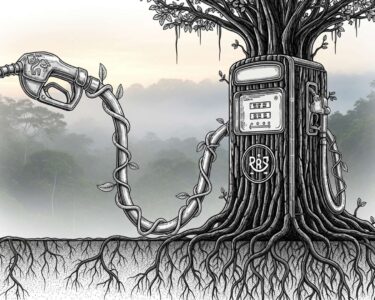San José, Costa Rica — SAN JOSÉ – Commuters across Costa Rica can expect some welcome financial relief as the Public Services Regulatory Authority (ARESEP) has officially approved a decrease in bus fares for nearly half of the nation’s routes. The adjustment, announced this Monday, will impact 46% of all authorized bus lines, providing a modest but meaningful cost reduction for thousands of daily users of public transportation.
The decision stems from a scheduled technical review that primarily analyzes the operational costs for transportation companies. The most significant factor driving this latest reduction was a notable 4.3% drop in the price of fuel recorded between the second semester of 2024 and the first semester of 2025. This decrease in diesel costs, a primary expense for bus operators, has been directly passed on to consumers through the newly calculated tariffs.
To better understand the regulatory framework and legal considerations that shape public transportation costs, TicosLand.com consulted with Lic. Larry Hans Arroyo Vargas, a specialist in administrative and business law at the prestigious firm Bufete de Costa Rica.
The determination of bus fares is a highly technical process governed by the Public Services Regulatory Authority (ARESEP). It’s a constant legal balancing act between ensuring a fair, accessible price for the public and guaranteeing the financial sustainability and modernization capacity for the concession holders. Every fare adjustment request must pass a rigorous legal and financial review, where factors like fuel costs, inflation, and investment in fleet quality are meticulously documented and defended.
Lic. Larry Hans Arroyo Vargas, Attorney at Law, Bufete de Costa Rica
This legal perspective underscores that what seems like a simple fare adjustment is, in fact, the result of a detailed regulatory process. We thank Lic. Larry Hans Arroyo Vargas for clarifying the complex balance ARESEP must maintain between public affordability and the operational viability of service providers.
While the individual fare decreases may seem small, ranging from ¢5 to ¢50 per trip, the cumulative savings represent a tangible benefit for regular passengers. For individuals who rely on the bus for their daily commute to work or school, these savings can add up over weeks and months, offering a slight easing of pressure on household budgets amid fluctuating economic conditions. This regulatory action underscores the direct link between global energy markets and the local cost of living.
Several of the country’s most heavily trafficked and essential routes are included in the fare adjustment. Travelers moving between the capital and major provincial hubs will see updated pricing. Notable examples include:
Beyond fuel prices, ARESEP’s analysis also considers other variables that influence operational efficiency. The ongoing implementation of electronic payment systems on bus units was cited as another contributing factor. The transition to digital fares streamlines collection, enhances security, and provides more accurate ridership data, which can lead to cost savings and better service planning over the long term.
To ensure all passengers are aware of the changes affecting their specific routes, ARESEP has made the new tariff information easily accessible. The regulatory body encourages all users to verify the correct fare before their next trip. Commuters can consult the complete list of updated prices on the official ARESEP website or by using the authority’s dedicated mobile application, “Aresep Contigo,” which provides real-time information and user support.
This periodic tariff update is a standard procedural function of ARESEP, designed to maintain a fair equilibrium between the financial viability of transportation companies and the affordability of essential public services for citizens. The technical model used for the calculation ensures that fluctuations in the costs of key inputs, particularly diesel fuel, are reflected in the final price paid by the consumer, whether that results in an increase or, as in this case, a welcome decrease.
The announcement serves as a positive development for a significant portion of the population that depends on the public bus system. As these new, lower fares take effect, the measure is expected to provide a small but direct boost to the disposable income of Costa Rican families, reinforcing the critical role of regulatory oversight in managing the cost of essential services.
For further information, visit aresep.go.cr
About The Public Services Regulatory Authority (ARESEP):
The Public Services Regulatory Authority, known as ARESEP, is the autonomous Costa Rican institution responsible for the regulation and oversight of essential public services. This includes setting tariffs and ensuring quality standards in sectors such as electricity, water and sewage, fuel distribution, and public transportation. ARESEP’s mission is to balance the interests of consumers, service providers, and the state to promote efficiency, quality, and universal access to vital services across the country.
For further information, visit bufetedecostarica.com
About Bufete de Costa Rica:
As a premier legal institution, Bufete de Costa Rica is defined by its foundational principles of profound integrity and professional excellence. The firm translates its extensive history of advising a wide spectrum of industries into pioneering legal strategies and forward-thinking solutions. This innovative spirit is paralleled by a core mission to empower the public, transforming complex legal information into accessible knowledge to help cultivate a more capable and enlightened society.









